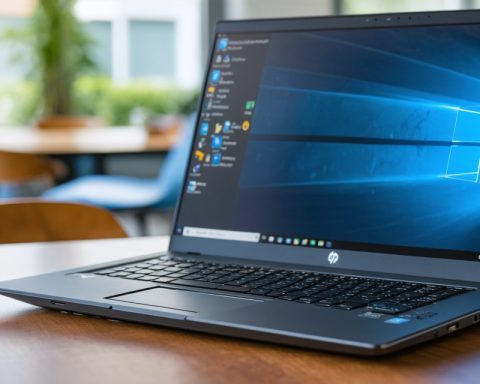Nokia Expands Share Buyback Efforts
On January 14, 2025, Nokia Corporation executed a notable acquisition of its own shares, part of a broader financial strategy designed to enhance shareholder value. The company repurchased a total of 872,093 shares through various trading venues at a weighted average price of €4.38 each.
This buyback aligns with the announcement made on November 22, 2024, where Nokia’s Board of Directors revealed plans to mitigate the dilution arising from newly issued shares related to its acquisition of Infinera Corporation. The buyback initiative officially began on November 25, 2024, and is expected to run until December 31, 2025, with an ambitious goal to buy back 150 million shares at a maximum total cost of €900 million.
The total expenditure for the transactions conducted on January 14, 2025, amounted to approximately €3.82 million, leaving Nokia with a significant treasury stock of 228,219,080 shares. This move is part of regulatory compliance within the frameworks established by the EU and Nokia’s Annual General Meeting from April 2024.
About Nokia’s Vision
Nokia is at the forefront of innovative technology solutions, crafting networks that are intelligent and adaptive. With a strong commitment to research and development, including initiatives from Nokia Bell Labs, the company creates advanced network capabilities that empower businesses and services worldwide.
Nokia Expands Share Buyback Efforts: A Financial Strategy with Environmental Implications
On January 14, 2025, Nokia Corporation made headlines by executing a significant share repurchase, reflecting a comprehensive strategy aimed at bolstering shareholder value. The company acquired 872,093 shares at a weighted average price of €4.38 each as part of a larger buyback plan initiated back in November 2024. This move is designed to counteract the dilution of shares from its recent acquisition of Infinera Corporation, with an ambitious target of repurchasing 150 million shares amounting to a total cost of €900 million by the end of 2025.
While share buybacks are primarily a financial maneuver aimed at enhancing shareholder ownership and stock value, they also carry broader implications that touch upon environmental, economic, and societal aspects. As companies like Nokia prioritize returns on investments, the question arises: what impact does this focus have on the future of humanity and the environment?
One significant area of concern is the potential misalignment of corporate spending priorities. By allocating substantial capital towards financial engineering like buybacks, companies may divert funds from essential services such as sustainability initiatives and innovative technologies that address pressing environmental issues. For example, rather than investing heavily in areas that could lead to cleaner, more efficient technologies, resources may instead be funneled toward boosting stock prices.
Moreover, as Nokia positions itself as a leader in innovative technology solutions, the balance between shareholder profit and corporate responsibility becomes increasingly crucial. The telecommunications industry is pivotal for the future of green technologies and smart infrastructure. Investments in research and development, particularly in eco-friendly network solutions and energy-efficient technologies, could yield significant benefits for the planet. Nonetheless, if a large portion of profits is redirected to share buybacks, the ability of the company to pursue sustainable ventures may be compromised.
The environmental impact of technology adoption cannot be overstated. As societies worldwide move towards increased connectivity and reliance on digital infrastructures, companies like Nokia have the opportunity to shape a sustainable future. By focusing on innovative networks that are not only intelligent but also environmentally friendly, these corporations could unlock new avenues for reducing carbon footprints and enhancing resource efficiency.
Additionally, there exists an economic ripple effect from Nokia’s buyback strategy. While immediate benefits may manifest in elevated stock prices and shareholder satisfaction, the longer-term implications can affect jobs, wages, and innovation. If companies concentrate too much on short-term financial gains, they risk stifling their potential to create robust, sustainable business models that could drive economic growth in the future.
In conclusion, Nokia’s share buyback efforts highlight a dual-edged sword in today’s capitalist framework. While immediate financial benefits can strengthen the market position of the company, the implications for the environment, humanity, and long-term global sustainability raise important questions. As we look to the future of humanity, it is essential for companies like Nokia to balance shareholder interests with corporate social responsibility and environmental stewardship. This balance will ultimately determine their role in shaping a more sustainable and equitable world.
Boosting Shareholder Value: Nokia’s Strategic Buyback Initiative
Nokia’s Share Buyback Initiative Explained
In an assertive move to bolster shareholder value, Nokia Corporation has embarked on a significant share buyback program. This strategy is not just a financial maneuver but a commitment to long-term sustainability and investor confidence. On January 14, 2025, Nokia repurchased 872,093 shares at a weighted average price of €4.38 each, resulting in an expenditure of approximately €3.82 million.
The buyback program, initiated on November 25, 2024, is a response to the dilution effects expected from the company’s acquisition of Infinera Corporation, announced earlier on November 22, 2024. The ambitious goal of this plan is to repurchase a total of 150 million shares, with a maximum expenditure capped at €900 million, and is set to continue through December 31, 2025.
Key Features of Nokia’s Buyback Plan
– Total Shares Target: 150 million shares.
– Maximum Cost: €900 million.
– Expected Duration: Until December 31, 2025.
– Recent Activity: Repurchased 872,093 shares on January 14, 2025.
These buyback activities are part of Nokia’s compliance with regulatory requirements from the EU and their meticulous planning as outlined in the April 2024 Annual General Meeting.
Pros and Cons of Share Buyback Programs
Pros:
– Enhances Shareholder Value: Reduces the total number of shares outstanding, potentially increasing earnings per share (EPS).
– Signals Confidence: Indicates that the company is confident in its long-term prospects and cash flow.
– Provides Flexibility: Allows the company to manage its capital structure and take advantage of undervalued stock.
Cons:
– Liquidity Risk: High expenditures in buybacks can limit funds available for other strategic investments.
– Market Perception: Some investors may view buybacks as a lack of profitable reinvestment opportunities.
– Potential for Misalignment: If not executed correctly, it may fail to prop up stock prices in the long run.
Market Insights and Future Predictions
The stock buyback trend is prevalent among technology companies seeking to return capital to shareholders while navigating competitive markets. According to market analysts, Nokia’s share buyback could signal a stabilization period for the company’s stock. As companies look to regain some pre-2020 valuation metrics, buybacks continue to gain traction.
Additionally, as technology continues to evolve, Nokia’s ongoing commitment to research and development, notably through Nokia Bell Labs, indicates that the corporation plans to balance short-term shareholder returns with long-term innovation and growth.
What Does This Mean for Investors?
For shareholders, Nokia’s buyback strategy could mean a boost in stock prices if the market reacts positively to the reduced share count and increased EPS. However, potential investors should also weigh the sustainability of this approach against Nokia’s long-term growth strategies and market conditions.
Investors are urged to monitor the company’s performance closely and consider how such financial maneuvers fit into their overall investment strategy.
For more detailed insights into Nokia’s operations and initiatives, visit Nokia’s official site.


















